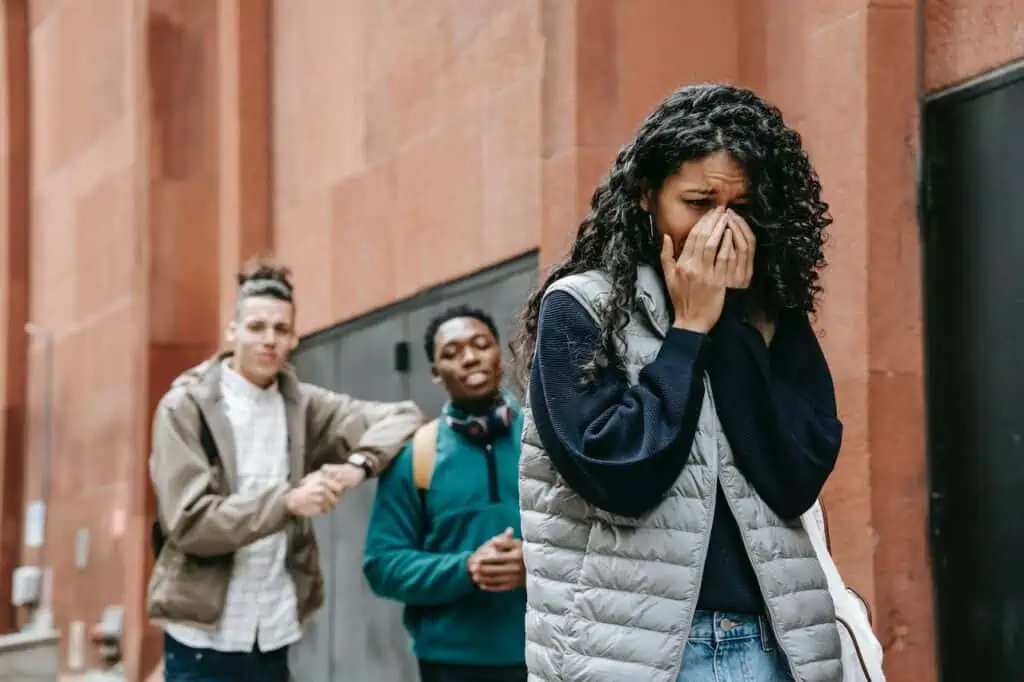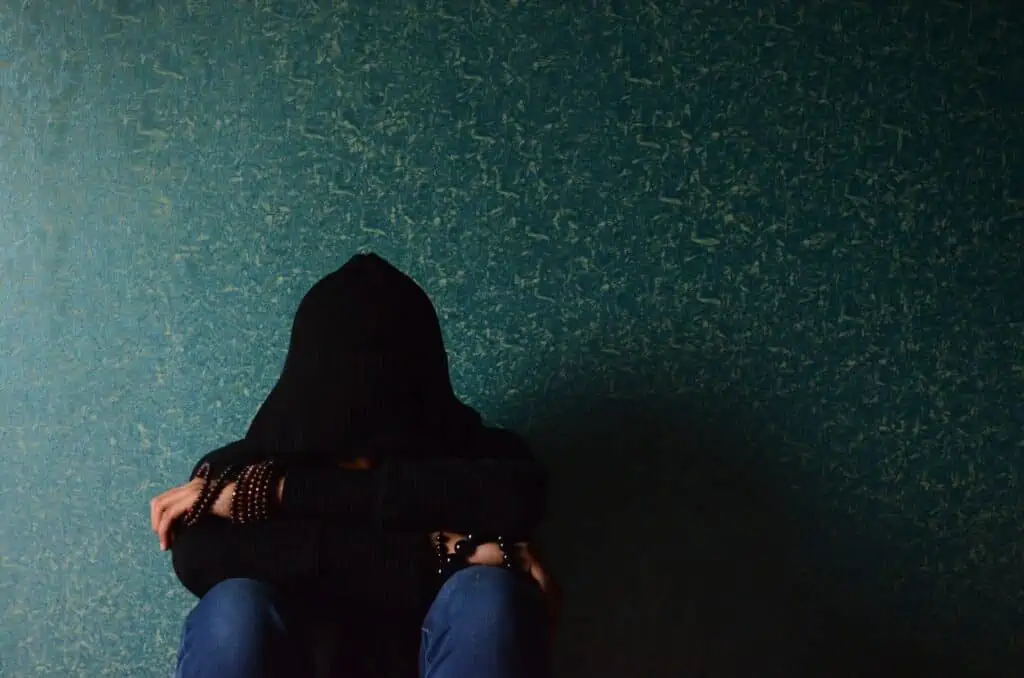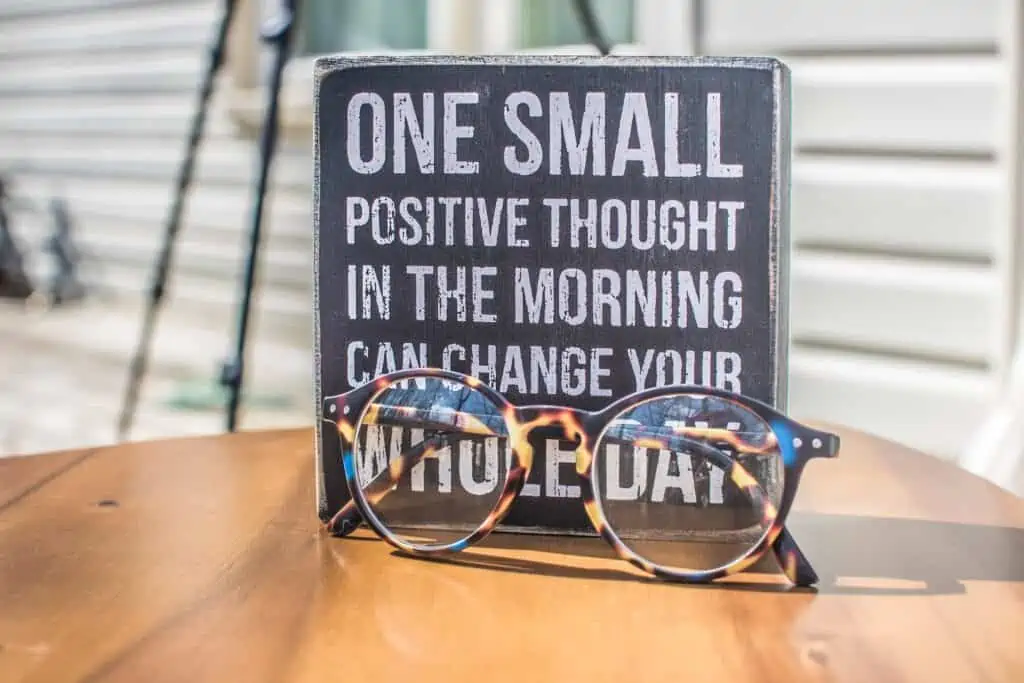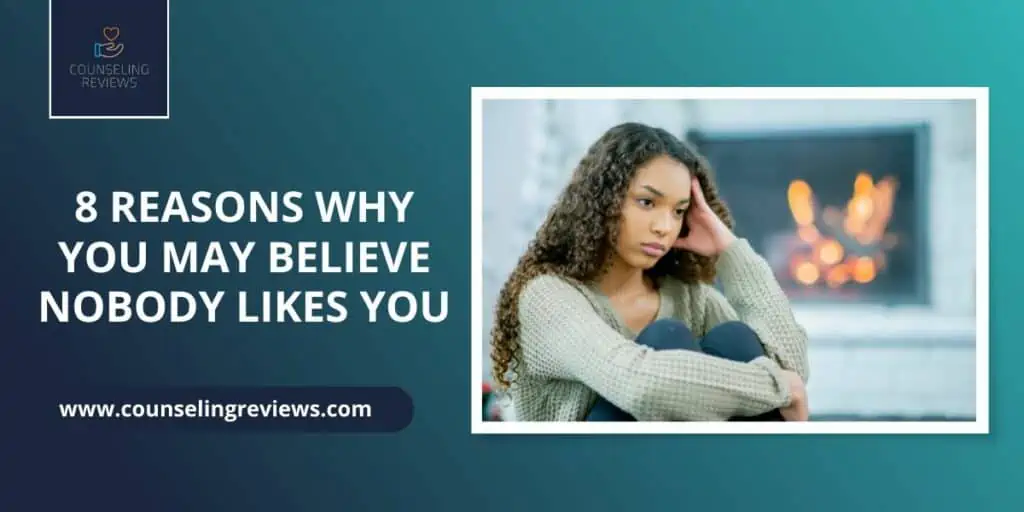Human beings are social creatures who require connections with others.
When we feel disconnected, as though nobody likes us, this can create an enormous sense of loneliness and isolation. We begin to see ourselves as separate and the outside world as “other.”
As a therapist who has worked with hundreds of clients, I can assure you, many people have experienced this feeling. The irony is, feeling unlikeable at times, is a common thread shared among many.
Here, we will examine why you might feel as though nobody likes you, the impact of loneliness, and the steps you can take to improve your mindset.
8 Reasons Why You May Believe Nobody Likes You
There may be a variety of reasons you believe nobody likes you.
Below, we will take a look at a few possibilities to help you determine why you may be feeling this way.
The Inner Critic
The inner critic is a voice inside all of us and is often a voice first developed during childhood, and further solidified throughout adulthood.
The inner critic is essentially the negative and judgmental way in which you talk to yourself. For example, if you are at a party and are meeting new people, your inner critic might say something like, “don’t talk about your job anymore, you are going to bore people to death.”
This inner critic can impact you by making you feel self-conscious and uncertain of yourself.
You may be so focused on what not to say to people, that you reveal very little of yourself, making it difficult to connect with others. The inner critic may be so loud, you may feel inhibited to socialize unless circumstances feel safe and your vulnerability is limited.
A Hurtful Parent or Bullying From the Past
Being bullied and feeling isolated from peers, can have devasting consequences on someone’s mental health.
Likewise, an emotionally abusive parent who ridicules their child can significantly lower their child’s self-esteem. When you have experienced people telling you or showing you that you are no good, you begin to believe it.
This belief makes it difficult to formulate healthy connections with others, further contributing to the feeling of being unlikeable.
Being Rejected in the Past
Rejection is painful, no one likes to be rejected.
Though we have all experienced rejection, it is always unpleasant no matter how evolved we have become to handle such rejection.

If we place a lot of weight on those rejections, we can start to believe that everyone will reject us or that we are unlikeable.
Hanging With The Wrong Crowd
Perhaps you are hanging out with people who don’t share your values or interests. If you are finding it difficult to connect with others, ask yourself if you have anything in common. Is it possible you feel unliked because your peers are into technology and electronic dance music and you prefer hiking and bluegrass?
Dichotomous Thinking
It would be very rare for every single person to dislike you. In reality, there will be some people that like you and some people that don’t, just as you don’t like everybody you encounter. Is it possible you are focused on the rejections instead of the positive interactions you have encountered? This would be an example of dichotomous thinking, also known as black-and-white thinking.
Misinterpreting people’s reactions to you
It is estimated that 90% of communication is delivered non-verbally. Is it possible you could be misinterpreting people’s regard for you? For example, you may be talking to Sally who is shifting her feet from side to side as she listens to you talk.
You might interpret Sally’s behavior as being bored. Instead, there is a possibility Sally’s feet hurt, or she has restless leg syndrome. You may be misinterpreting people’s behavior as dislike, when in fact their behavior may have nothing to do with you.
Trying too hard
There is a possibility there is something you are doing unintentionally to put others off. Trying too hard to please someone or trying too hard to connect with others can come off as disingenuous. People can mistrust someone they believe is trying too hard to be their friend.
You have a negative attitude
If you complain a lot, judge others, and have an overall negative attitude, people may genuinely dislike your company.
It is completely healthy to vent your frustrations and complaints from time to time, but if you find yourself doing this often, it can feel depressing to be around.

Friendships encompass shared joys, common interests, and occasional commiseration. If you find yourself only sharing negativities with others, there is little chance this behavior will lead to a healthy friendship.
The State of Loneliness and Its Impact
Dr. Vivek Murthy, former U.S. Surgeon General, states, “the reduction in life span for loneliness is similar to that caused by smoking 15 cigarettes a day, and it has a greater impact on life span than obesity.” (McGregor, 2017) Understanding the impact of loneliness might be the motivation you need to make some positive changes to expand your social circle.
Cigna, the health insurance company, conducted a survey of 20,000 U.S. adults in 2018 on loneliness. Their findings are significant and inform us, most of us have felt or are currently feeling lonely.
The study revealed:
- 46% of people sometimes or always feel alone
- 47% of people sometimes or always feel left out
- 1 in 4 respondents rarely or never feel understood by others
- 1 in 5 people say they rarely or never feel close to people (Cigna, 2018)
These results are rather staggering. If you are feeling like nobody likes you, please take some comfort in knowing you are not alone in feeling this way. Clearly, feeling lonely and disconnected is a human condition we all experience occasionally.
Steps You Can Take
Below is a list of things you can do to help improve your mindset as well as improve your connection to others.
Observe the Inner Critic
Begin to observe your inner critic. When does your inner critic come out? What does your inner critic say to you? Can you identify if your inner critic sounds familiar to you, like a parent or a former bully?
As you become more familiar with your inner critic and its possible origins, the better equipped you will be to challenge that voice. Once you are able to stand up to your own inner critic, that judgmental voice will become less intrusive and powerful.
This will allow you to open yourself up more authentically, creating more meaningful relationships with others.
Positive Affirmations
Unfortunately, there isn’t a magic wand to automatically make you feel confident and willing to take risks in making new friends. If there was such a wand, everyone would want one. It takes a lot of work and effort to build confidence and one way to start, is by repeating positive affirmations daily.
Here are three to get you started but you can find hard-copy affirmations online at Amazon.
- I am kind, I am interesting, I am worth getting to know.
- I am caring, I am fun, and I am a good friend.
- I can take a risk to get to know someone else and I will be ok being vulnerable.
Volunteer
I have always been a big advocate of volunteering time for a cause. Not only are you helping others, but you are also building a community with people who share your values. It feels good to help others and can help you to build self-esteem. Look here to volunteer somewhere in your area.
Improve social skills
If after thoughtful consideration you believe you may benefit from improving your social skills, here are a few things to consider.
Are you actively listening when people are talking to you, or do you dominate the conversation?
Are you leaving it up to others to make plans or do you initiate gatherings with friends? If you realize you are negative a lot of the time, are you able to focus more on positive topics?

If you need help role-playing or could use some objective feedback about your social skills, working with a counselor would be a great option.
Therapists are skilled in understanding the social skills necessary to make positive connections with others.
Get Started with Online Therapy
If you are feeling as though you have tried some of these tips unsuccessfully, it may be a good idea to work with a therapist.
Sometimes, we need outside support to help us make a positive change. At Betterhelp, they have affordable online therapists who can help you build confidence in formulating positive relationships with others.
Conclusion
It can feel extremely isolating and lonely to feel as though nobody likes you. Often, this isn’t true, but that doesn’t make the feeling any less valid or any less painful. There are things you can do to improve this belief and create meaningful relationships with others.
It is never too late to make a change, you deserve to feel a part of this world and you deserve to feel likable.





